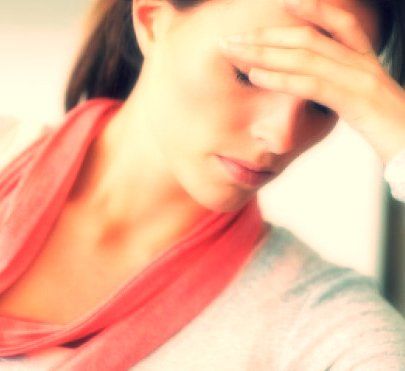Symptoms of depression include sadness or loss of interests, a loss of energy, trouble concentrating, feelings of hopelessness, as well as sleep and appetite problems. These symptoms seriously decrease the quality of life for the mothers, daughters, wives, and sisters afflicted, and cause great concern in those who love and depend on them.
So why are women at higher risk? The reasons appear to be both biological and social. Women tend to have more biological stressors, including childbirth and hormonal changes throughout their lifespan. These stressors can cause biochemical changes associated with depression. For example, the stress of pregnancy and childbirth can be an emotional roller coaster, due to both biochemical and psychological factors. In addition, with motherhood comes huge responsibilities, and mothers’ roles are forever altered, often in more dramatic and life-changing ways than that of fathers.
The balancing act of career versus family responsibilities also places great stress on women. While women have found fulfillment in the workplace, they have also experienced additional societal pressures. Even as women are working outside of the home in larger numbers than ever, they often continue to bear the majority of childrearing and housekeeping responsibilities. Many women trying to juggle both family and work report feeling increasingly overwhelmed and depressed.
However, stay-at-home mothers are not exempt from depression. While most agree raising children is the most important job one can have, society, family members, and mothers themselves can downplay the importance of this role. Moms may feel a lack of appreciation from their family, as their job becomes taken for granted. Resentment can occur in women who begin to feel this traditional division of labor is not the equal partnership they imagined their marriage would be.
Interestingly, marriage itself has been implicated as a possible source of depression in women. Despite the stereotype of husbands equating marriage with a “ball-and-chain,” studies show that on average married men are typically happier than married women. Reasons for this are unclear, although imbalance in responsibilities and communication problems may be a factor.
Does this mean that women are doomed to be sad? Not at all. In fact, some researchers believe that women only appear to be experiencing more depression than men because a higher percentage of women admit depressed feelings and seek out help. Thus, women are also more likely to receive treatment, address issues, and make the kind of life-enhancing changes that will lead to more happiness and fulfillment in the long run.
What can women do about depression?
Self-help options for depression should address the social, biological, and emotional factors involved. Increasing social supports and managing time better to include personal time is key. Stress reducing activities and better communication with spouse and family to share responsibilities is also important.
A healthy diet and moderate, regular exercise have been proven in many studies to be helpful in alleviating depression in both sexes. This may be especially helpful in women because of the stress reducing, hormone-regulating effects of good nutrition and exercise. Unfortunately, for many women diet and exercise become just another chore, particularly when the goal is weight loss or achieving the ideal figure. Focusing on the energy and mood-enhancing effects of exercising, including treating exercise time as a time for play can be helpful. Rethinking healthy eating as an opportunity to take care of oneself and fuel activities can also be an effective hedge against depression.
For serious symptoms of depression, it is important to seek professional help. Effective therapy techniques that include a focus on the individual woman’s issues, whether they include time management, improved self-image, assertiveness skills, treatment for past issues, or stress reduction, go a long way in reducing the painful symptoms of depression. Recent studies show marriage therapy may be the treatment of choice for married women with depression. Medications are also an option in cases of moderate to severe depression.
For many women, the answer lies in changing their thinking. Even in light of the social pressures, family and career responsibilities, and biochemical changes women face, often the most difficult enemy is themselves. Depressed women are much more likely to focus on their mistakes and shortcomings, to berate themselves, and to feel hopeless and worthless. As one can imagine, this usually leads to deepening sadness. Empowering themselves and focusing on the positive not only alleviates depression. Changing thinking can be a life- changing skill as well, enabling women to recognize and appreciate themselves for all the roles and responsibilities they assume.
